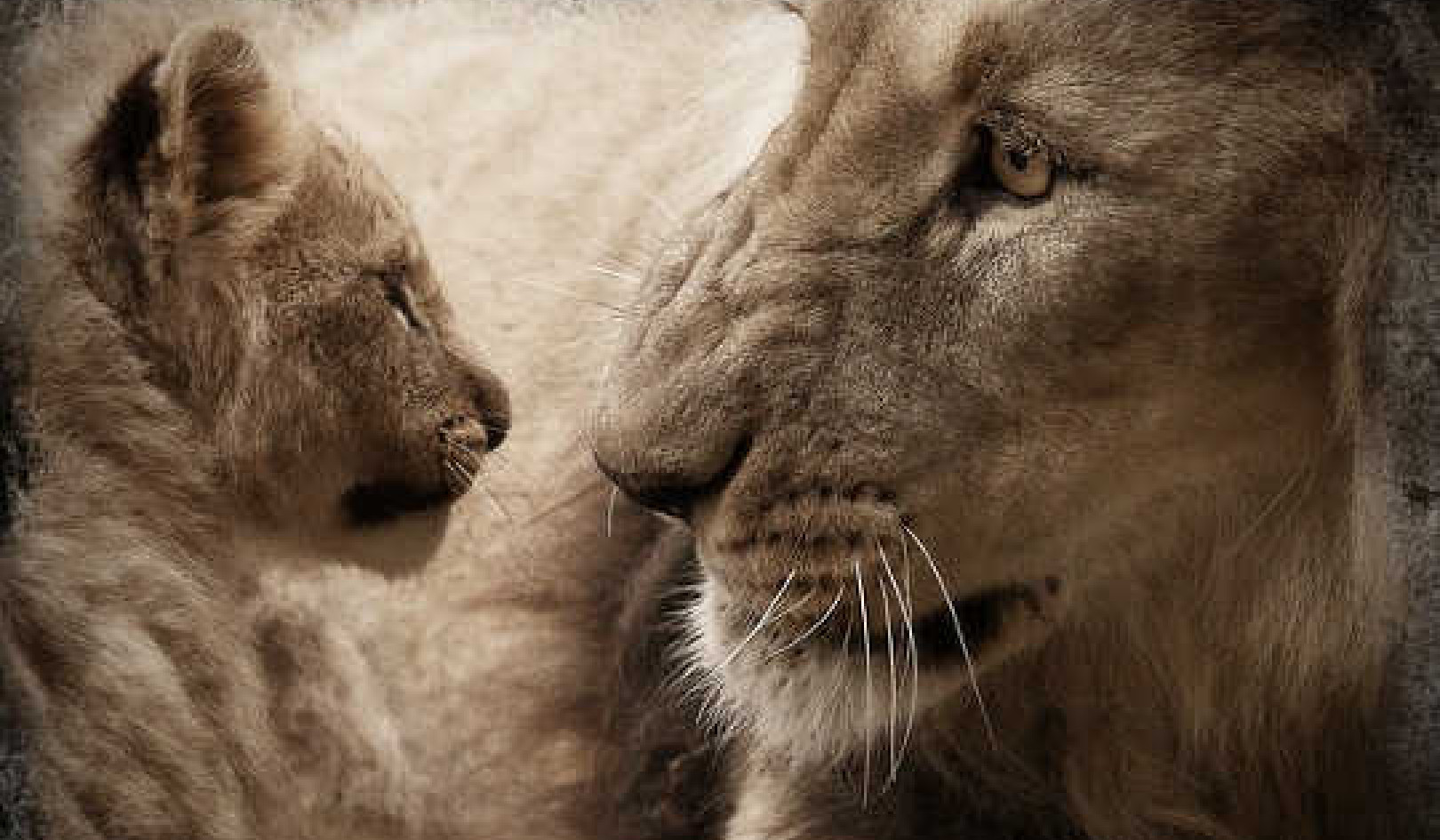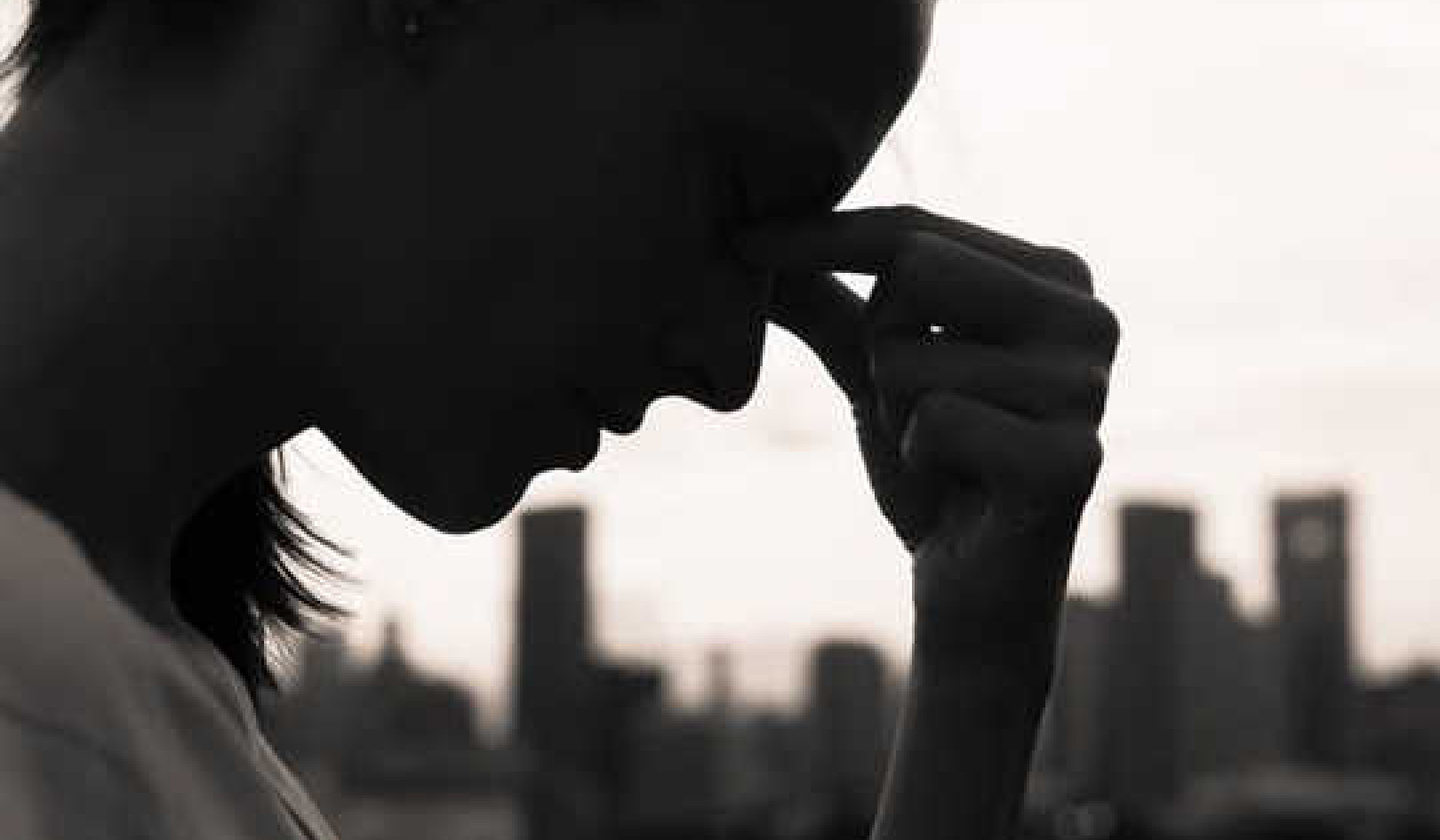
The present is what is happening when you strip away all the resentments of your past and all the worries you have about your future. To live in the present is to live as if the past never existed and as if the future were irrelevant. Living in the present is a vision for life that is achievable in any moment, yet is unattainable in every moment. None of us is that perfect.
To live in that seemingly surreal state of mind requires one thing: a deep self-confidence that you are good enough. In order to live in the present, you must trust that you will be able to handle whatever comes your way, without undue thought or preparation. When we were toddlers around the age of two, we had that deep self-trust. We knew beyond a shadow of a doubt that we were good enough, because we had no concept that we could be anything else but good enough. We were at ease with who we were. We were open and curious about each new moment. We had no expectations about what was supposed to happen. We didn't judge events or people as good or bad, nor did we blame anyone.
Instead, we adapted, showing our feelings in the moment and without reservation. Our joy was complete joy. Our anger and our tears were full and intense. We recovered from the setbacks of life in minutes. We were not self-conscious about what we were doing or about how we looked while doing it. Life was an adventure that we explored passionately and intensely.
As an adult seeking to know and do what's important now when facing uncertainty, you must rediscover this child-like state of mind. You will find it when you know in your heart that you are already prepared for this moment. Then you will be free to be true to who you really are at any-time, anywhere. Your joy will abound because you have no reason to fear what might happen if you make a mistake or if you don't do things the way someone else would want you to do them. You are good enough, even if others disagree.
Doing The Best You Can
When you do what's important now for you, you create a past that leaves you ready to handle the present. By default, the future is taking care of itself as you make decisions that are acceptable to you no matter what happens tomorrow. You no longer give yourself reasons to feel self-doubt, anxiety, or resentment. You are doing the best you can. You accept that what happens next is not in your control. You trust that you will handle whatever comes your way, no matter how fabulous or awful it may be.
Being capable of doing what's important now for you is a paradox. You must feel safe especially when a situation feels dangerous. Learning to be more present is therefore entirely about creating for yourself the ability to feel safe, no matter what is happening around you. You create this for yourself when you are able to seek fulfillment from within yourself, rather than searching for it from outside sources. When you feel fulfilled from within, you will feel good enough to make the mistakes that you will inevitably make when you dare to do what's important for you, right in the moment. When you are fully present, you are accepting of who you are. Your sense of self-worth is not linked to the world around you.
Your every thought, feeling, and action is yours alone. In contrast, the thoughts, feelings, and actions of others are theirs alone. There is no such thing as blame, because they didn't "do it" to you, and you didn't "do it" to them. Life is happening and you are merely adapting to it. The journey hurts because you are giving up your desire to have power and influence over others. The rewards are sweet, however, because you are gaining power over yourself, the only person over whom any of us truly have control.
This separation of yourself from the world around you is not to be confused with building a wall around yourself and being insensitive to the feelings and needs of others. Indeed, the effect is quite the opposite. Because you are so open and vulnerable, you feel a tremendous compassion for those who are suffering. Yet you are aware at all times that their suffering is not your suffering. You are aware that it is not your duty to change, fix or alter their life experience, even if you think you "know" what's better for them more than they know themselves.
When you are present, you are not needy. You don't "need" others to change who they are or how they behave in order for you to feel safe or loved. You don't "need" positive or instant gratification in order to feel good about yourself. Your sense of love and well-being comes from within. If you feel unsafe, you trust that you will do what you need to do in order to feel at peace again.
What's Important Now
When you are fully present, you are open and vulnerable. You say and do whatever comes to your mind without filtering it. You disclose your true feelings, right in the moment. You follow your inner spirit, trusting that you are doing what is right for you in that moment. If you don't get the result you wanted, you don't judge yourself or others as having failed. It's just what's happening in this moment. Your only question is, what's important for me in this new moment? In this way, your excellence is allowed to emerge from within you in ways that you may never have dreamed possible.
You might appreciate that this can also be a very dangerous way to live. You might say or do something that someone in your life is not going to like. You might offend someone important at work. You might do something impulsive, like having a sexual fling or quitting your job. You might spend yourself into a deep debt. You might even lose control of your emotions and do something vindictive or cowardly that you might later painfully regret. For these reasons, you need to feel very safe in order to dare to be present. When you expose who you really are, unfiltered and unguarded, you are very vulnerable. Is it a coincidence that we typically only show the "dark" side of our personalities to those whom we love the most? We don't yell at our boss or at our customers. We yell at our spouses, our children, and perhaps our employees. We feel safe with them. We know we can be who we really are when we are with people who love us or who have no power over us.
In order to live more fully in the present, we must learn how to feel safe even when a situation feels threatening to us. We must learn how to risk being vulnerable even when we can get seriously hurt, emotionally or physically. Does this not explain the appeal of "extreme" sports? When a person is climbing the side of a mountain with only a thin rope separating them from certain death, that person becomes very present. Is this not also what great athletes do in the last minutes of a championship game? They are vulnerable to the risk of disappointing their fans, yet they remain focused on doing what's important now for them, in order to get what they want in that moment -- victory. They put out of their minds any fear of the consequences if they fail to perform. They feel safe within themselves, at least in that situation, knowing that they are doing the best they can regardless of what results occur. If they don't do this, then their self-doubt will most assuredly lead to a decline in their ability to perform with excellence.
To be present is to be living in a state of consciousness. You may do things out of habit, but nothing you do is an unconscious habit. Rather, you are very intentional. Every word, gesture, and deed is intentional. By the same token, you are highly conscious of what others say and do. Instead of being lost in your own thoughts, you are tuned in to the world around you. The result is that other people feel your "presentness" in a deep way. Paradoxically, you are much more connected to them because you are no longer reacting to them as if your sense of self-worth were affected by what they say or do to you. Because you feel complete, you can set your own needs aside and simply be present with them, giving them the love, empathy, or advice that are truly helpful to them. You don't act out of a need to feed your ego.
When you are present, you are tuned in to the four dimensions of your body, your mind, your heart, and your soul, all at once. You are aware of how you feel within your body. You are tuned in to your emotions. You are in charge of your thoughts, rather than having your thoughts race frenetically in your mind. You are also connected to your soul, that part of you that directs you towards some higher Purpose for your life beyond the need for instant gratification. All this is happening for you at the same moment in time you feel fully integrated. Your mind's eye sees what your physical eyes see. You feel energized and passionate about what you are doing. Your thoughts are focused on what is happening, and you adjust and adapt your actions accordingly in order to do what's right for you. Your soul resonates with a deep peace that you are living this moment as you were meant to live it.
When you are fully present, you become open to a new way of making decisions in your life, using your own "sixth sense". Your sixth sense is your "Inner Knowing", that part of you which is not logical or emotional. You seek to develop this part of you as your surest guide for knowing what's important now for you. You accept that this "knowing" is distinct and separate from thinking, which is merely logic and therefore only as good as the facts and skills that you possess. You understand that "knowing" is also not your feelings. Though your feelings may be powerful, they are merely your heart bringing the past back into the present.
How can you be sure that your feelings about this present moment will bring about the same result as the last time? You cannot. Only your Inner Knowing rises above your thinking and your feeling. Learning how to recognize and act on your Inner Knowing is the greatest tool for discovering what's important now for you by living in the present.
The Yellow Brick Road
The journey towards living more fully in the present is like traveling down a "yellow brick road", as Dorothy did in The Wizard of Oz. You must feel motivated by the idea that there is a Land of Oz, where you will truly feel happy with yourself and your life. You must feel willing to face many frightening obstacles along the way. You must do this knowing that you have no idea whether you will ever find this mystical place.
The Land of Oz is a state of mind in which you feel good about who you are, what you want, and how you do things. This is the place where you will no longer feel you need to improve in order to be a good-enough person. All your desires to make changes in your life will go away, to be replaced by a desire to know who you are and to be true to yourself. You will still be "improving", but your reason will have changed from trying to be good enough to wanting to fulfill your purpose in life.
For this journey to appeal to you, you must decide that this is a state of mind worth finding. Otherwise, the enormous barriers to getting there will most assuredly knock you off the path. The barriers are the many reasons why you don't already believe that you are good enough right now. Like the Lion, the Tin Man, and the Scarecrow, at the end of the journey you may discover that you already have the courage, the heart, and the intelligence to be good enough to do what's important now for you. This is precisely what makes this a frightening journey at times. You will find it terrifying to face the possibility that you tried so hard to be better than you are, when the "real you" was good enough all along.
When we try to be better than good enough, we erect walls around who we really are. We do this with the best of intentions. From infancy to adulthood, we learn from our parents, mentors, friends, and from life itself that we must be a certain kind of person if we are to be loved and successful. We might learn at age four, for example, that having temper tantrums results in our parents being angry with us. So we learn to put up a wall around that part of us that wants to have temper tantrums. At the time we erect that wall, it serves us. But behind this wall, we are hiding part of who we really are, from others and from ourselves. In this way, our walls ultimately also make us blind to our "real" selves.
Removing a wall is very frightening. We erected that wall to protect ourselves from being hurt. We put it up in order to fit into how other people defined "good enough" for us. We learned that to have a temper tantrum might have painful consequences for us, such as rejection, criticism, humiliation, and attack. To tear down a wall is to expose ourselves once again to the risk of more pain and heartache.
Overcoming our innate desire to have that temper tantrum in the first place is the real secret to succeeding on this journey. When we have our walls up, we are suppressing who we are out of fear that our real selves might do something we'll regret. By facing our fears that we might actually do just that, we give ourselves the opportunity to overcome that dark side of our personalities. Then we can risk being who we really are without fearing that we will go on an angry rampage, or collapse in a weeping puddle of hopeless futility. Then we can truly dare to live in the present. Facing each wall is frightening.
That is why it is so vital to appreciate the rewards of being present. No sane person would otherwise want to go on this journey. Our fear of what might happen without that wall serves us. Our fear warns us that we are in danger. To then go ahead and do exactly what our fear is telling us not to do is ... painful. If you are like me, at the moment of truth, you will want to bolt as fast as you can. Your memory of the rewards of being present is all that you will have to keep yourself from running away.
Each time you dare to cross through a doorway, you will likely experience powerful and bone-chilling emotions. If you consider acting in spite of your fear, the door will open for you, exposing a dark and foreboding abyss. You cannot see what is on the other side. You have to go forward with blind determination. You have to trust that you are not about to step off a cliff, hurtling towards a rocky and bloody bottom, like a skydiver whose parachute does not open.
Each time you dare to break through a wall, you will be rewarded with the knowledge that you can live without that wall and survive to tell the tale. You will feel an unloading of a burden that you probably didn't even realize you had been carrying. The burden is your wall. The wall that you erected to protect yourself from being hurt unwittingly becomes a huge weight around your neck, aging you and crushing you. On the other side of each doorway, you will feel a deeper, more open connection to the people and the world around you. You will feel more connected with who you really are.
Crossing a doorway is not a one-time event. All it means is that the next time you stand at such a doorway, you will cross it with greater courage. Each subsequent doorway invites you to uncover your vulnerability at an ever-deeper level. In that respect, the doorways are tools for you. They are actions that you can take anytime you feel anxious, discontent, or worried about what is happening in your life and about what it might mean for you.
These are the six doorways that will help you shed your past and dare to do what the real you is aching for you to do:
1. Listen to Your Body: Facing the fear that your body is trying to tell you something that you do not want to know.
2. Change Your Beliefs: Facing the fear that what you have always believed to be true may not be so.
3. Be Authentic: Facing the fear of exposing to other people what you are truthfully thinking and feeling.
4. Risk Disapproval: Facing the fear of hurtful consequences once you allow others to see your true self.
5. Let Go of Outcomes: Facing the fear that you might crumble if your most valued people, possessions, and passions are taken away from you.
6. Feel Your Feelings: Facing the fear that you can no longer blame how you feel on other people.
By crossing through these six doorways with ever greater courage, you will begin to strip away the baggage of the past that is clouding your ability to know what's important now for you. Indeed, you will begin to build a wellspring of strength from within yourself that will allow you to withstand the enormous pressures you will undoubtedly feel from others around you as you begin to embrace the person you really are, rather than the one they wanted you to be.
In doing so, you may not become rich, famous, or find your soul-mate, though any of these things might happen. But you will be more satisfied with who you are, with what you want, and with how you do what you are doing, regardless of what results you get for your efforts. You will feel the joy of being connected to the real you and to the world around you as it really is.
You will know in your own heart that you are doing the best you can because you are focusing all of your body, mind, heart, and soul on what's important now for you. Is there anything more that you can ask of yourself?
Here are some closing thoughts about The Journey...
Remember...
* Keep a vision in your mind of a time when you were everything you wanted to be, letting it pull you forward when you feel defeated.
* Each of us is the best we can be when we are fully present, focused yet relaxed, curious yet non-judgmental, committed yet flexible.
* You will have the self-trust it takes to live fully in the present when you can create for yourself a deep sense of emotional safety, regardless of what is happening in your life.
Watch for...
* Pushing yourself too hard. You spent a lifetime building your inner walls of self-protection. You won't tear them all down in a month.
Try this...
* Start writing in a journal. Your self-disclosure will act like a mirror, helping you to see the real you that is hidden behind your walls. Do whatever you have to do in order to safeguard your journal so that you can frankly and openly write down your true thoughts and feelings.
Reprinted with permission of the publisher,
Present Living & Learning, Inc.
www.presentliving.com. ©2002.
Article Source
What's Important Now: Shedding the Past So You Can Live in the Present
by John Kuypers.
 What's Important Now opens up for readers the upside down world of living in the present, where the only time that is Real is now. Readers learn practical techniques to let the unchangable past go, and accept their lack of control over the future. Instead, they learn that to master themselves and their own present moment choices to create a life of joy and peace, no matter what trial comes along.
What's Important Now opens up for readers the upside down world of living in the present, where the only time that is Real is now. Readers learn practical techniques to let the unchangable past go, and accept their lack of control over the future. Instead, they learn that to master themselves and their own present moment choices to create a life of joy and peace, no matter what trial comes along.
Info/Order this book. Also available as a Kindle edition.
About the Author
 John Kuypers is the Executive Director and Founder of Present Living & Learning, Inc. (www.presentliving.com), an organization dedicated to helping people from all walks of life learn how to work and live passionately with no regrets by living in the present. John is a leadership coach, speaker and workshop leader. He is a corporate marketing executive by background. John grew up on a farm in Southern Ontario, Canada. His website is http://johnkuypers.com
John Kuypers is the Executive Director and Founder of Present Living & Learning, Inc. (www.presentliving.com), an organization dedicated to helping people from all walks of life learn how to work and live passionately with no regrets by living in the present. John is a leadership coach, speaker and workshop leader. He is a corporate marketing executive by background. John grew up on a farm in Southern Ontario, Canada. His website is http://johnkuypers.com


























